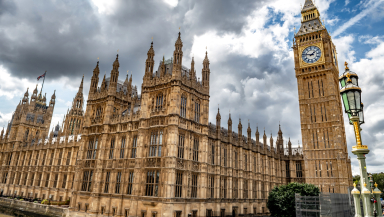
The old adage that the Church of England is “the Tory party at prayer” apparently remains true, as new research from Exeter University suggests Anglicans are “disproportionately stable” in their support for the Conservatives.
After 14 years in office and a string of short-term prime ministers, the Conservatives are possibly the weakest they have ever been in their centuries-long existence.
Recent polls by Ipsos Mori put the party on an average of 15 per cent, well behind the governing Labour Party on 25 per cent and resurgent Reform on 34 per cent.
It is entirely conceivable that, should the Conservatives survive this brush with death, it will be thanks to its ardent Anglican supporters.
The research, which was published in the Parliamentary Affairs journal, looked at responses to the 2009–22 UK Household Longitudinal Study survey.
Despite the period in question covering the ascension of David Cameron, Brexit, Covid 19, the controversial Liz Truss budget, coups, counter coups and unprecedented levels of third world immigration, nine out of 10 Anglicans indicated their views towards the party had not significantly changed.
Over a third of Anglicans (39 per cent) said they intended to vote Conservative. The research suggests that Anglicans are five times more represented among Conservative supporters than Roman Catholics.
However, it is not only the Anglicans who appear to have an attachment to the Conservatives. Hindus, Jews and Presbyterians are also more likely to support the Tories. By contrast Muslims are less likely to support the Conservative Party.
Lead researcher Dr Ekaterina Kolpinskaya said: “The analysis shows a rather traditional picture of the Conservative Party faithful who feel a strong affinity with the party.
"It shows it is wrong to ignore religion as a predictor of core party support in modern Great Britain.
“While there is some convergence on socially conservative issues among the main political parties in Great Britain, the Conservative Party is still a flagship organization that unites traditional social values with a vision of national identity which seems to have appealed to Anglicans between 2009 and 2022.”













